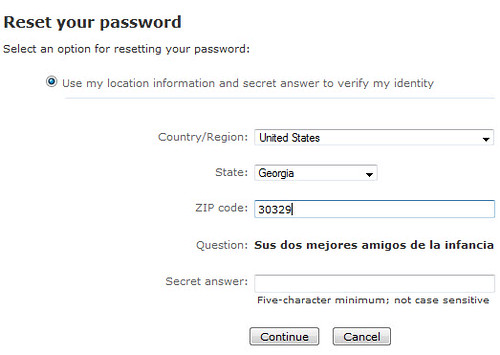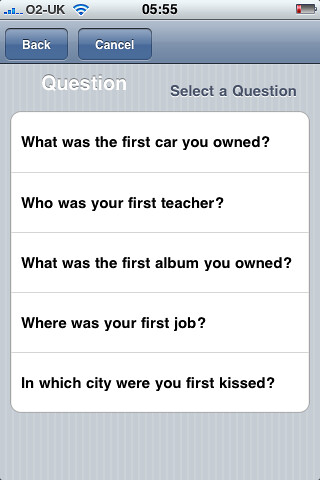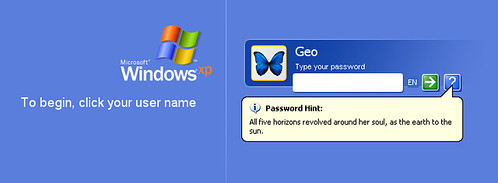Quotes | The Problem | How to Improve

Quotes
- "I don't have a bank account because...
- "The 10 Most Common Password Security Questions...
- Password security questions for the depressed:...
- "Your password should be secret, but...

is licensed under CC BY 2.0
The Problem
- Some sites use the answers to security questions as an extra authentication factor.
- These 'secret' answers are often weak, short, guessable, reused on multiple sites, etc. -- illusory security.
- Can you remember what your favorite food or movie was years ago when you created an account?
- Have your interests, preferences or memory recall changed in recent years?
- Hackers may be able to find those answers:
- on social media sites, e.g., best friend in grade school, pizza preference, favorite color, ...
- in public records, e.g., mother's maiden name, street where you lived, ...
- in ongoing data breaches from other sites, e.g., answers and info that are no longer 'secret'

Creative Commons Attribution-NonCommercial 2.5 License
How to Improve
- To avoid a hacker impersonating you and hijacking your account,
reduce personal information available online
and strengthen existing (and new) secret answers. - Reduce posting -- by you and your 'friends'
-- of your (and their) personal details on social media;
added bonus: marketers will know less about you. - Don't participate in quizzes/polls that trick you into revealing personal info!
e.g., Why You Shouldn't Play That 'Fun Quarantine Game' on Facebook
Why Social Media Name Games Are a Security Risk -

"password" by Terrapin Flyer is licensed under CC BY-SA 2.0 Don't supply 'hints' for your secret answer -- or for your password.
- Update any answers for each site to be unique / unpredictable :
- If menu only: choose an untrue, opposite, or weird answer
- Otherwise: enter a misspelled, foreign, false or random phrase.
- If site allows you to create your own security questions,
why not a hacker-proof one? e.g., "What's the answer to Question 1?" -- with a random answer!  Desirable characteristics: (from Choosing and Using Security Questions Cheat Sheet)
Desirable characteristics: (from Choosing and Using Security Questions Cheat Sheet)
Memorable: The user must be able to recall the answer to the question,
potentially years after creating their account.
Consistent: The answer to the question must not change over time.
Applicable: The user must be able to answer the question.
Confidential: The answer to the question must be hard for an attacker to obtain.
Specific: The answer should be clear to the user.- Avoid cluttering your brain.
 Record secret answers -- along with the question -- in PM [e.g., Notes field; on right]
Record secret answers -- along with the question -- in PM [e.g., Notes field; on right]- To be even more organized,
create a "Security Questions" section (this may be automatic in future versions of 1PW),
and add an individual field to separate each question & answer [on right].  When requested, just lookup, copy, and paste an answer.
When requested, just lookup, copy, and paste an answer.- Don't rely on secret answers alone for sensitive accounts
-- use Multi-Factor Authentication when available - Refs: Security Questions
